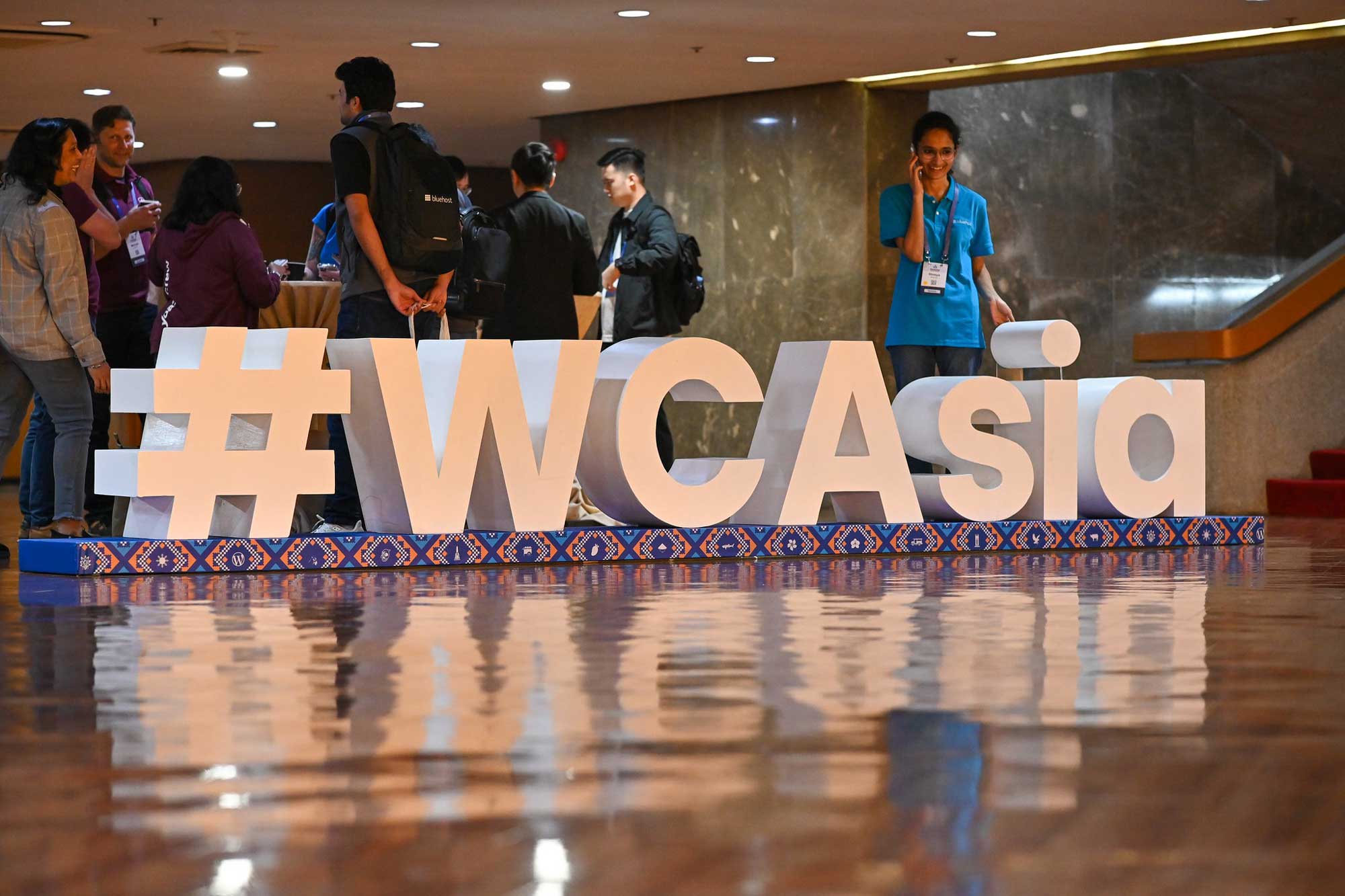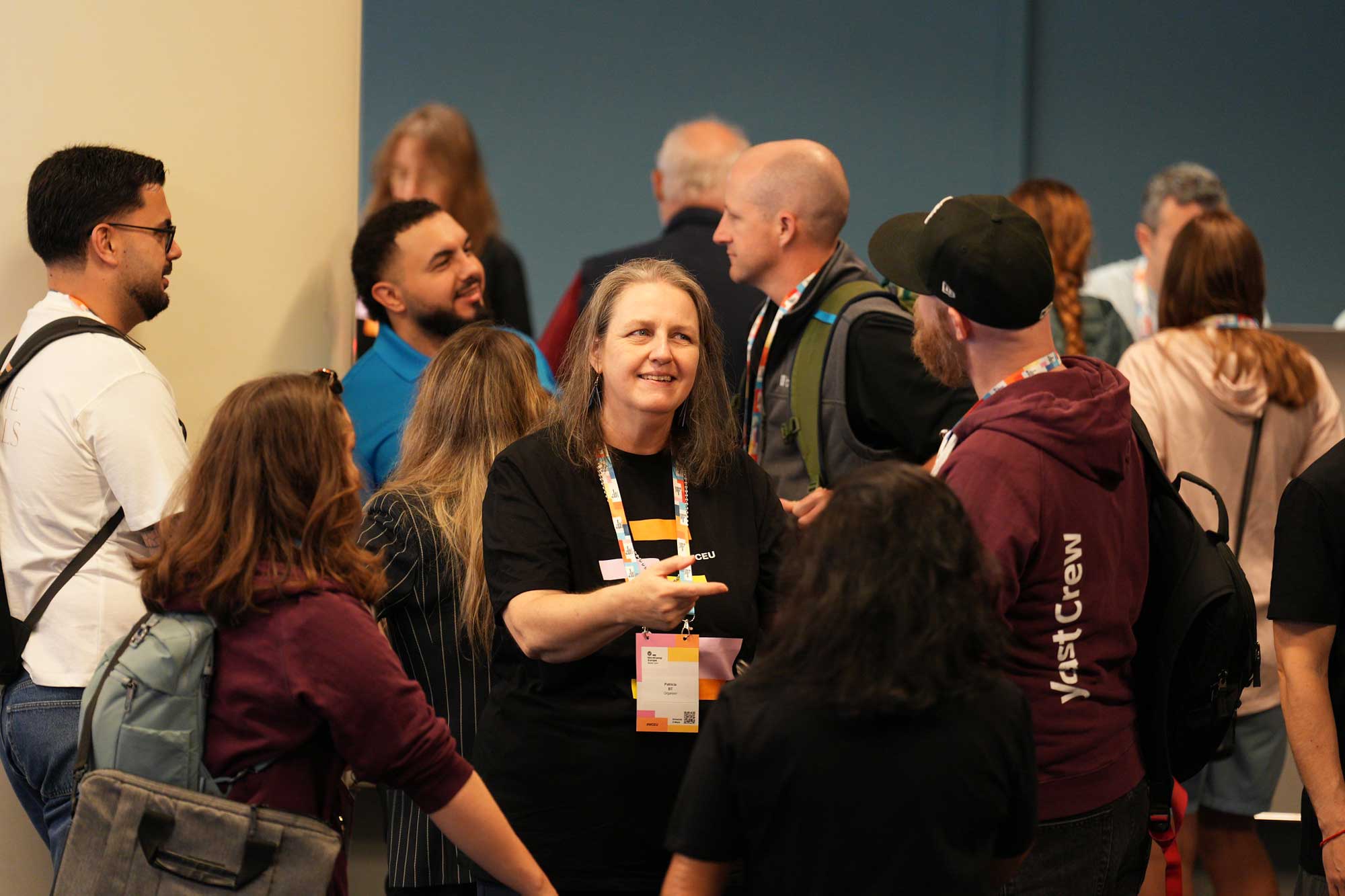WordCamp Asia is set to return in 2026 — but not without behind-the-scenes tension.
Organizers of the 2025 event say they were sidelined in choosing the next host city, shut out before a proper handover was complete, and “flushed out.” WordCamp Central, meanwhile, says it stepped in to keep the flagship event from losing momentum after the 2025 team suggested skipping 2026.
Accounts from WordCamp Asia organizers (including some who spoke on condition of anonymity), WordPress Community Team program managers, and project leadership point to a breakdown in communication, complicated by cultural misunderstandings, competing interpretations, and lingering mistrust after a turbulent year for WordPress.
Conflicting accounts and a rushed Mumbai bid
Tokyo was initially the front-runner to host WordCamp Asia 2026 but withdrew after seven months of stalled venue negotiations, which organizers say were exacerbated by delays and a lack of support from WordCamp Central. The local team was left “exhausted and demoralised,” according to one organizer.
The failed bid prompted a new call for host city applications in November 2024, but “basically got none,” in stark contrast to the eight applications received for the 2025 event. So organizers reached out to cities that had previously applied — including from Nepal, Malaysia, and India — to gauge interest.
“We reached out, saying, ‘Hey, you guys applied back in 2024. Do you still want to host?’ And they all said, ‘With what’s going on, we don’t want to host it,’” another organizer said, referring to tensions in the WordPress community following co-founder Matt Mullenweg’s contentious keynote at WordCamp US 2024.
The 2025 team turned to WordCamp Central for help, proposing two options: return to the community to find a new host city, or skip 2026. Soon after, Automattic-sponsored Program Manager Rocío Valdivia informed them that Mumbai had been chosen as the 2026 host city and a new lead appointed.
“We asked for guidance, not for them to make the decision for us,” one organizer said.
Valdivia, who served as a mentor for the 2025 team, confirmed reaching out to organizers in Mumbai but said it was “with the awareness and support of the 2025 leads.” She said that other regional program managers assisted, and cited precedent, pointing to WordCamp Europe 2015 being awarded to Seville, Spain, after a direct invitation.

Adding to the differing accounts, Executive Director Mary Hubbard, who’s employed by Automattic, said the 2025 team had indicated they wanted to pause the event in 2026 due to burnout, prompting mentors and program managers to begin scouting cities and leads before planning fell too far behind.
“So yes, the process looked different from previous years, but that was because we were working from a different starting point,” Hubbard said. “The goal was never to bypass anyone, but rather to avoid a leadership vacuum that could have resulted in the event being skipped altogether.”
But the 2025 organizers insist skipping 2026 was just one idea under discussion, not a decision. “We weren’t abandoning the event, we just needed support to figure out a way forward,” one said.
While two Indian cities had originally applied to host WordCamp Asia, Mumbai wasn’t one of them. Its proposal was submitted just three weeks before WordCamp Asia 2025, following what 2025 organizers described as a rushed and incomplete vetting process. According to organizers, Aditya Kane, who coordinated with local organizers in Mumbai, initially refused to submit an application, citing that WordCamp Central had already selected Mumbai and a formal submission was unnecessary.
Hubbard said Mumbai was the only city to submit a “complete, eligible application.” “The local team was strong, experienced, and responsive, and their proposal was shared with the 2025 leads before any final decision was made,” she said. “In fact, after meeting with the prospective organizers, the 2025 leads agreed to proceed with Mumbai just days before [WordCamp Asia 2025].”
Kane said the Community Team had approached him, asking for his help to identify if any Indian cities were ready and willing to host WordCamp Asia. He acknowledged the tight timeline but said there was no pressure from WordCamp Central. “We applied as a host city for the event formally after making sure a couple of dozen community organizers from around the country were onboard with Mumbai,” he said.
Still, the selection left some former organizers reeling. One described the decision as “top-down,” said they felt “gas-lit,” and were told to “just accept” Mumbai. Another added, “There was no sense of accountability or explanation. It just happened.”

Community Team steps in as leadership confusion escalates
In the weeks following WordCamp Asia 2025, confusion over leadership roles between outgoing and incoming organizers played out on WordCamp Asia Slack.
Ahead of the event, members of the 2025 team had met with former leads, program managers, and Hubbard to resolve tensions around the global and local lead roles. Several people on the call told The Repository a path forward had been agreed by all. But at the conference in Manila, a slide mix-up during Mumbai’s host city announcement meant only Nepali organizer Regan Khadgi was named as global lead, adding to the leadership confusion.
In Slack messages viewed by The Repository, Khadgi said he had agreed to the role on the understanding that he would be one of three global leads. He said Kane had proposed merging the global and local roles. While open to the change, Khadgi wanted assurance that the leadership team would reflect geographic diversity, rather than be dominated by organizers from one country. “… there is a possibility of similar thought processes influencing key decisions,” he wrote. “As the only Global Lead at the moment, I am concerned that this could create an imbalance when making collective decisions.”
WordCamp Asia co-founder Jon Ang, Director of Enterprise Strategy at Human Made, responded that two additional global leads were still being confirmed and suggested outgoing leads Shusei Toda and Yuli Yang could temporarily support Khadgi, as had been done in previous years.
Tensions came to a head on April 3, when Automattic-sponsored Community Team Program Manager Isotta Peira posted in the Slack channel, asking Ang to “stop interfering,” directed Toda and Yang to complete wrap-up tasks, and informed the 2025 team they would be removed from Slack.
“@Jon Ang, we truly appreciate your efforts and willingness to help, despite not having an official role within the WCAsia 2025 team,” Peira wrote. “However, at this stage, your continued involvement is disrupting the handover process. I kindly ask you to stop interfering and allow the 2026 team to begin their work independently from the 2025 team.”
Peira confirmed that she posted the message, which followed an earlier email from Hubbard asking the 2025 team to step aside. She claimed Ang’s behavior included asserting influence over key decisions, undermining new leadership in private channels and DMs, and framing the transition as a “power grab” by WordCamp Central, despite previously indicating he was stepping back.
She said that some members of the 2025 team were removed from specific organizing channels, but only after the handover to the 2026 team was complete.
Ang said the 2025 team had asked for his help managing tensions between the 2025 and 2026 leads and mentors. “My Slack messages were focused on encouraging open dialogue, addressing concerns already raised by the 2026 global lead, and offering continuity and support,” he said. “I made it clear the 2025 team stood ready to assist with ongoing discussions around venue, dates, and budget. This kind of transition support has always been part of how flagship events have successfully evolved.”
Several organizers confirmed that the 2025 team had asked Ang to assist and pushed back against the idea that he had interfered.
“Yes, we did ask Jon to help bridge things. He’s been involved since the beginning and has all the context,” said JC Palmes, a local lead for WordCamp Asia 2025. “I’ve been helping organize WordCamp Asia alongside Jon and Shusei since 2019, so we’ve all worked closely enough to know when to step in and when to step back. Jon was there to support us, and he’s always been diplomatic and level-headed in tense situations.”
Past global lead Andy Saw, COO of Exabytes, also disagreed with Peira’s characterization. “Not really, I don’t really feel [he was disruptive], because I was in those Slack channels,” he said.
Saw noted that in past years, WordCamp Central had been more collaborative, calling out Naoko Takano, an Automattic-sponsored community manager based in Japan, for her years of support. This year, he said, there was a “clear change” and claimed past organizers were “flushed out” and the 2025 leads were left in the dark during the transition, hindering continuity. “Things were happening in the background that were not transparent to the outgoing team,” he said.
Other organizers told The Repository they were concerned that without the support and institutional knowledge of the 2025 team and other past organizers, the 2026 leads would be “reinventing the wheel” — left to figure out team dynamics and budgets without the support of past organizers, as had been the norm in previous years. Others said they stepped back from 2026 out of concern that all their unpaid work could be dismissed, and instead of building on past contributions, organizers could simply be shut out.

Code of Conduct concerns
Tensions weren’t confined to online. During WordCamp Asia 2025, Toda was involved in a public confrontation with Valdivia. According to multiple witnesses, Valdivia approached Toda in a busy hallway and began yelling at him, prompting other organizers to intervene.
Local lead JC Palmes, who stepped in to help de-escalate the situation, described the confrontation as “tense, emotional, and difficult to ignore.”
The altercation is understood to have stemmed from disagreements over the location of the keynote sessions. According to Toda, the exchange left him feeling unsafe. “The tone used during this altercation was nowhere near ‘advice.’ I felt attacked and that I was not taken seriously as she started laughing,” he said.
Valdivia disputed Toda’s account. “I would never laugh at someone who expresses that they feel unsafe,” she said. “But I was surprised by the comment. I value respectful communication and teamwork, and took immediate steps to clarify the situation and move the conversation forward constructively.”
Toda also pointed to the blurred lines between Rocío’s role as the 2025 team’s mentor and her employment at Automattic, noting that the conflict centered on decisions involving Automattic CEO Matt Mullenweg. Valdivia responded: “Mentors come from various companies or work independently, and we’re all expected to maintain a clear separation between our professional roles and our responsibilities as community mentors. My priority has always been the event’s success and the community’s well-being.”
Ang claimed that Valdivia, who was on the WordPress Incident Response Team until recently, was assigned to handle a Code of Conduct complaint that Toda submitted about the incident. However, Executive Director Mary Hubbard disputed this, stating the complaint was handled appropriately and denying that Valdivia was involved in the investigation.
Four months later, the complaint remains unresolved. Toda said he still hadn’t received a resolution to his complaint, and that replies to his emails to the Incident Response Team were averaging 7–9 days.
Miscommunication, mistrust and moving forward
The friction over Mumbai’s selection, the 2026 handover, and the Code of Conduct complaint that followed didn’t happen in a vacuum. Organizers and program managers say they reflect deeper, unresolved tensions around communication, trust, and control in the WordPress community.
As one program manager put it, “At the time, it felt like a combination of miscommunication and scepticism towards anything Automattic people do, plus concerns about gatekeeping, that all contributed to the situation.” Cultural differences and contrasting communication styles also compounded the tension.
Peira cited a similar mismatch: “Some miscommunication likely came from the expectation mismatch between what was initially communicated (skipping 2026) and what some individuals later demanded (continued control or influence).”
Ang, meanwhile, said the WordCamp Asia team had lost its autonomy over the event and called on Hubbard to investigate and reinstate the team.
“We had previously received alignment from the Executive Director that WordCamp Asia would retain autonomy over its leadership and future iterations, a model we’ve upheld since 2020. Yet despite a successful 2025 event, the entire organizing team was removed shortly after, even after offering to support a full handover. That decision remains difficult to understand,” Ang said.
“I strongly urge [Mary Hubbard] to look into what has happened, and to consider reinstating this highly experienced and decorated team to ensure that the 2026 organizing team receives the support it deserves.”
Feature image: WordCamp Asia 2025.








Leave a Reply